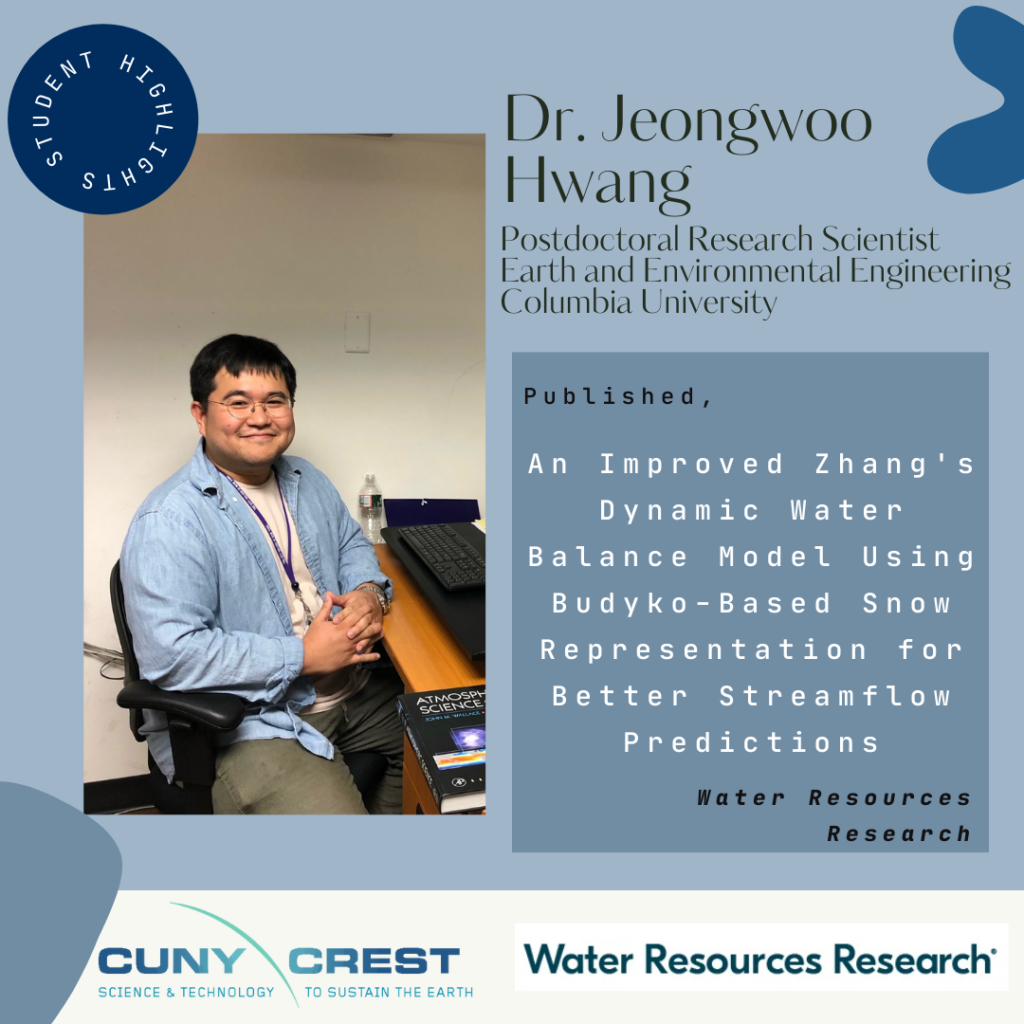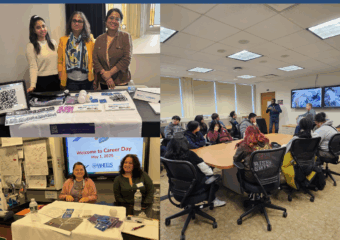Student Highlights: Dr. Jeongwoo Hwang
Student Highlights: Dr. Jeongwoo Hwang published a paper in Water Resources Research on, “An Improved Zhang’s Dynamic Water Balance Model Using Budyko-Based Snow Representation for Better Streamflow Predictions”
Dr. Jeongwoo Hwang completed his B.S. in Civil Engineering at Konkuk University, South Korea, in 2014. He received his M.S. in Civil and Environmental Engineering at Hanyang University, South Korea, in 2016, with a focus on coastal engineering and hydraulics. He later earned his doctoral degree at the City College of the City University of New York in 2021, focusing on the natural and human-impacted hydrologic systems and their relations with climate variability, basin conditions, and hydrometeorological extremes. He is currently a Postdoctoral Research Student in the Department of Earth and Environmental Engineering at Columbia University in the City of New York. His primary research interests are aligned towards establishing sustainable water resources planning and management by advancing our knowledge of hydroclimatology and data science for water resources engineering.
In the end of 2021 in December, Dr. Jeongwoo Hwang published the scientific article “An Improved Zhang’s Dynamic Water Balance Model Using Budyko-Based Snow Representation for Better Streamflow Predictions” in Water Resources Research. This article was written alongside Dr. Naresh Devineni, Department of Civil Engineering at The City College of New York.
Brief Synopsis of “An Improved Zhang’s Dynamic Water Balance Model Using Budyko-Based Snow Representation for Better Streamflow Predictions” by Jeongwoo Hwang and Naresh Devineni.
“Understanding the water balance of a catchment in relation to its regional climate forcings and catchment characteristics is critical for predicting current and future water resources amid changing climate and land cover” (Hwang 2021). Dr. Hwang’s point of focus in this study was to improve Zhang’s monthly water balance model, which reflected the physical partitioning process of the hydrological cycle based on regional climate and catchment characteristics. Zhang’s model does not include snow processes. Snow processes are a critical aspect due to the use of snowmelt water for different regions. In Dr. Hwang’s study he introduces a snow module based on surface energy balance and Budyko-limits on melting and combine it with the existing water balance equations. The purposed model uses five different parameters to determine the physical partitioning process of the hydrological cycle. The proposed model significantly outperformed the original model, improving the median NSE by 31% (from 0.51 to 0.67) and increasing the number of catchments with an acceptable NSE by 58%.
References:
Hwang, J., & Devineni, N. (2022). An improved Zhang’s Dynamic Water Balance Model using Budyko‐based snow representation for better streamflow predictions. Water Resources Research, e2021WR030203.




